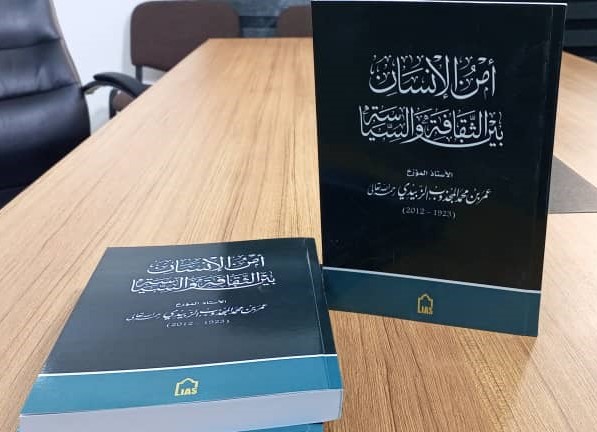Recently published: Human Security between Culture and Politics
Written by: Mr. Omar bin Muhammad Al-Majzoub Al-Zubaidi, may God Almighty have mercy on him (1923 – 2012)
This book:
It is concerned with interest in the impact of culture on the lives of societies, and the relationship of cultural thought to political thought in the past and modern times, to the correlation that exists between movement and thought in life, and the effects of non-human cultures on events resulting from the disintegration of political systems.
….Arabic language dictionaries define security as the opposite of fear, and fear is the emotion of feeling threatened by something that is endearing to the soul. Starting from life until the last of its attachments, both material and moral, to a person.
Man is a qualitative unit among what God Almighty created in the living. He distinguished him through thought so that he can worship God with knowledge of the faith of faith, and through the Sharia to do good deeds. God Almighty appointed him as a successor on earth to populate it and not cause corruption in it. That the human movement advances science.
Culture means that a person knows the reasons for working for what will improve his life. Sense and meaning, and this expands to include the creation and development of civilizations in their history.
Politics is the wisdom of management to develop the human movement in life for the better, and to protect this best, and here was the meeting of politics and culture in their history.
The book includes ten chapters:
Chapter One: Cultural Teacher.
Chapter Two: Culture Reference and the Supervision Secretariat.
Chapter Three: Culture and the development of modern imperialism.
Chapter Four: The reference impact of culture on human security
Chapter Five: The approach to scientific knowledge and the culture of peace in the East
Chapter Six: A culture of ancient thought whose evil has become new among people
Chapter Seven: Unified political thought threatens world security
Chapter Eight: Intellectual media and the spirit of Islamic civilization
Chapter Nine: Intellectual conflicts about civilizations
Chapter Ten: Science and faith in the lives of modern people.
Number of pages of the book: 408 pages.


